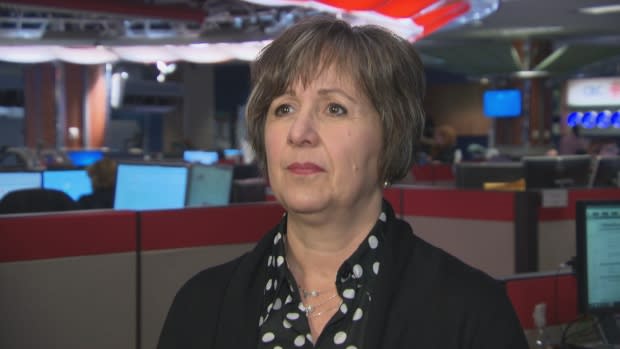Abusers tracking victims through technology, shelters say
Abusive ex-partners are increasingly using phone apps and vehicle tracking technology to spy on domestic violence victims, according to some Ottawa-area shelters.
Maude Bérubé, intervention coordinator at Maison Libère-Elles in Chelsea, Que., said one victim of spousal violence discovered a magnetic GPS monitoring device under her car when she took it to the mechanic.
"These are situations that we see," Bérubé told Radio-Canada in French.
More commonly, the harassment occurs online, she said.
"Often, women are afraid that their spouse has hacked either their bank account, their phone or their Facebook account."

Roadside assistance
Francine Groulx, executive director of Maison d'amitié in Lowertown, said she's heard of women being tracked by roadside assistance systems such as OnStar, or through geolocation information shared on social media accounts.
"It has been an issue and a worry of all [workers in the] violence against women sector. Not only the shelters, but definitely the counselling services and so forth," Groulx said.
Groulx said online shopping is also problematic, as it can leave online evidence of the buyer's location.
Staff at Maison d'amitié have been receiving training on the issue, but Groulx said it's difficult to keep up with the technology.
"Some alleged abusers, some husbands or partners, are even better at this than we are," she said.

Shelters taking precautions
Now, when a woman asks to stay at Maison Libère-Elles, she's asked to disable geolocation on both her phone and on Facebook, Bérubé said.
Bluetooth must also be turned off because family devices are often grouped together, and even some games children play on tablets can reveal the user's location.
'There's a new application every month or so.' - François-Xavier Desmarais, Okiok
Then there are the apps specifically designed for tracking, said François-Xavier Desmarais, a specialist in computer forensics with cybersecurity firm Okiok.
"There's a new application every month or so," Desmarais said. "They can track your conversations. They can track your communications."
The apps can be installed remotely, Desmarais said, and can even be made unsearchable so the phone's owner doesn't know they're there.
"Like anything, [those apps] could be used maliciously for tracking people," he said.
Desmarais urged anyone who believes they have such an app on their phones to restore their device to its factory settings.

Signs to watch for
Anne-Sophie Letellier, a doctoral student at L'Université du Québec à Montréal who specializes in digital security issues, said that while every domestic violence situation is unique, there are common signs that spying is going on.
"The woman may realize that her ex-partner has a lot of information that she did not give, but she will not know how they got this information," Letellier told Radio-Canada in French.
Letellier offers training to women who've experienced domestic violence on how to protect themselves against spying by their former partners.
She recommends changing passwords frequently and adding two-step authentication for devices and accounts. She also recommends victims contact police if they believe they're being monitored.
Ottawa police were unable to say how many complaints they've received about this sort of surveillance.
Gatineau's police force estimates it's received about a dozen complaints from victims being tracked through technology.

